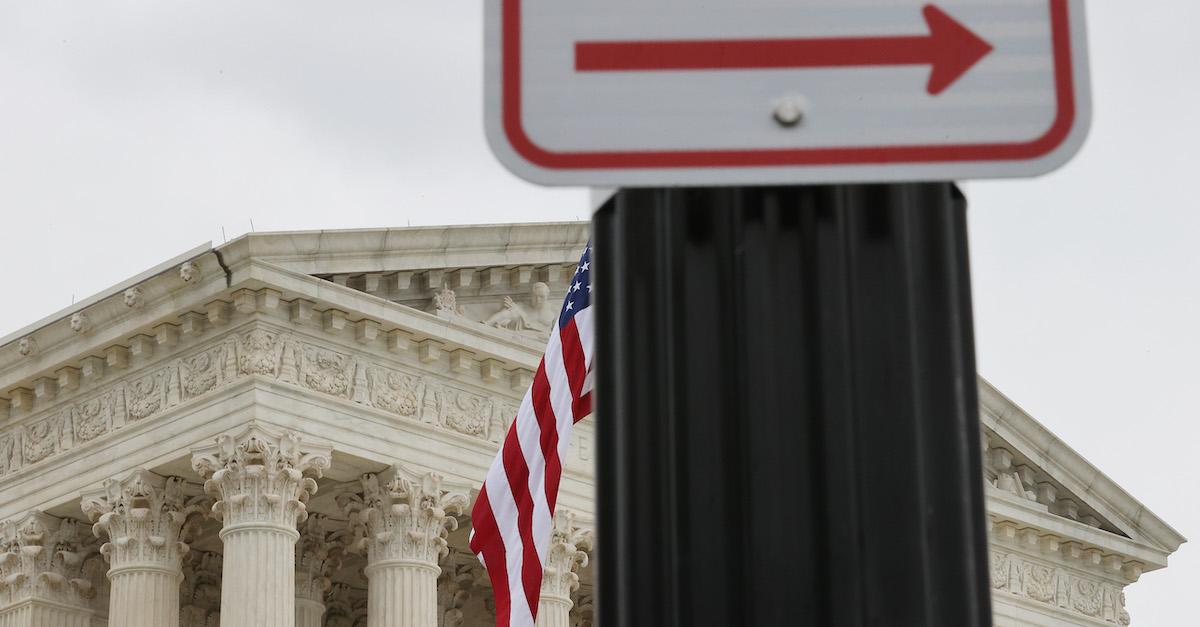
The Supreme Court of the United States on Wednesday agreed to decide whether Republican state legislators in North Carolina can step in to defend a voter identification law that is already being defended in court by the state’s Democratic attorney general.
In the case stylized as Berger v. NC Conference of NAACP, North Carolina State Senate and House leaders, led by Republican Sen. Philip E. Berger, claim that North Carolina Attorney General Josh Stein (D) is not providing “adequate representation” in his defense of North Carolina Senate Bill 824, which requires a photo ID to vote.
The state branch of the NAACP quickly sued to enjoin the law, arguing that the photo ID requirement would have a structurally racist result on the franchise in the Tarheel State by disproportionally impacting Black and Latino people.
A district court ruled in favor of North Carolina state officials–rejecting the GOP’s efforts to have multiple voices speaking for the state in the litigation. A panel of judges on the U.S. Court of Appeals for the Fourth Circuit initially sided with the GOP leaders. The whole court later reheard the case, however, and overruled the panel in a 9-6 opinion, siding with the state and vindicating the district court.
That majority opinion notes [emphasis in original]:
In this appeal, we are asked to decide whether the leaders of the North Carolina House and Senate are entitled to intervene, on behalf of the State of North Carolina, in litigation over the constitutionality of the State’s voter-ID law. What makes this case unusual is that North Carolina’s Attorney General, appearing for the State Board of Elections, already is representing the State’s interest in the validity of that law, actively defending its constitutionality in both state and federal court. Nevertheless, the legislative leaders have moved twice before the district court to intervene so that they also can speak for the State, insisting that this case requires not one but two representatives of the State’s interest. Twice, the district court rejected these requests.
…
If North Carolina’s General Assembly, in its considered judgment, believes that the Attorney General is not adequately representing the State in this or any case, then it of course is free to remove the Attorney General and substitute some other representative, including the Leaders. But what the Leaders are asking for is more than that: The right of a state to designate not one but two representatives – or three, or more, because there is no discernible limiting principle here – in a single federal case, all purporting to speak for the state.
Barack Obama-appointed Circuit Judge Pamela Harris went on to describe the GOP leaders’ position as necessitating a “cacophony” of voices and parties purportedly on the same side of litigation that would result in an “intractable procedural mess.”
“An important exercise of State sovereign authority is the defense of state law from constitutional attack,” the GOP argued in their petition for writ of certiorari–seeking the right to intervene and posing their specific legal issue as to whether or not a state official “must overcome a presumption of adequate representation to intervene as of right.”
The NAACP waived their own response to the GOP’s efforts but Stein and the other state respondents replied in opposition by noting that they are “actively defending the challenged law.”
Despite this, the nation’s conservative high court will take up the GOP’s quest to defend the law while potentially settling an alleged circuit split on the issue. The Democrats insist that split “is illusory” but the nine justices are not constrained by the reality of the legal landscape, regardless of which party is actually correct on the merits.
Notably, a state court in North Carolina has already invalidated the challenged law at the bottom of this political and procedural dispute by finding that it was adopted with a “discriminatory purpose,” that “racial discrimination was a motivating factor” in the law’s passage, and that the law will have a racist impact on Black citizens.
[image via Chip Somodevilla/Getty Images]